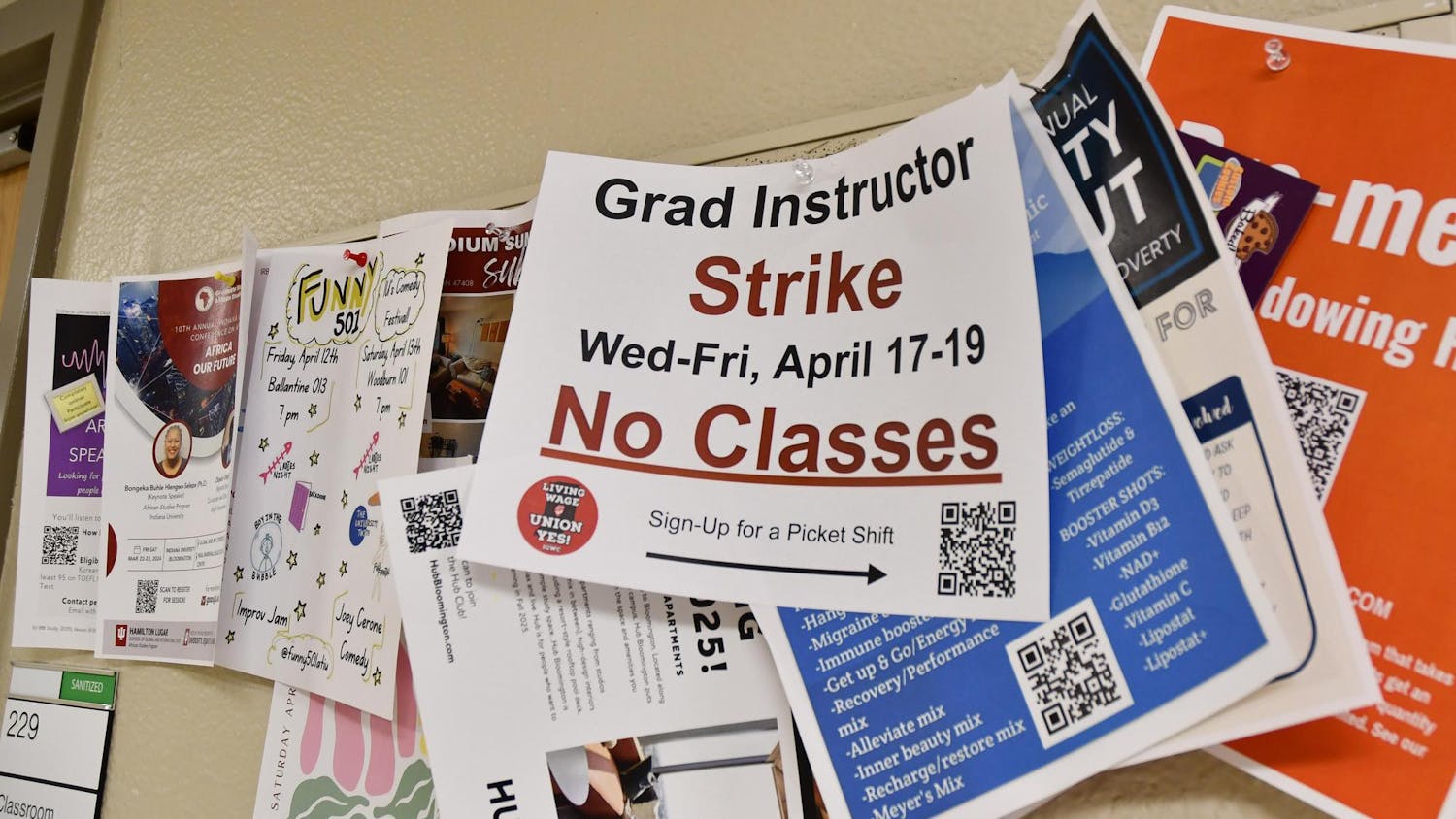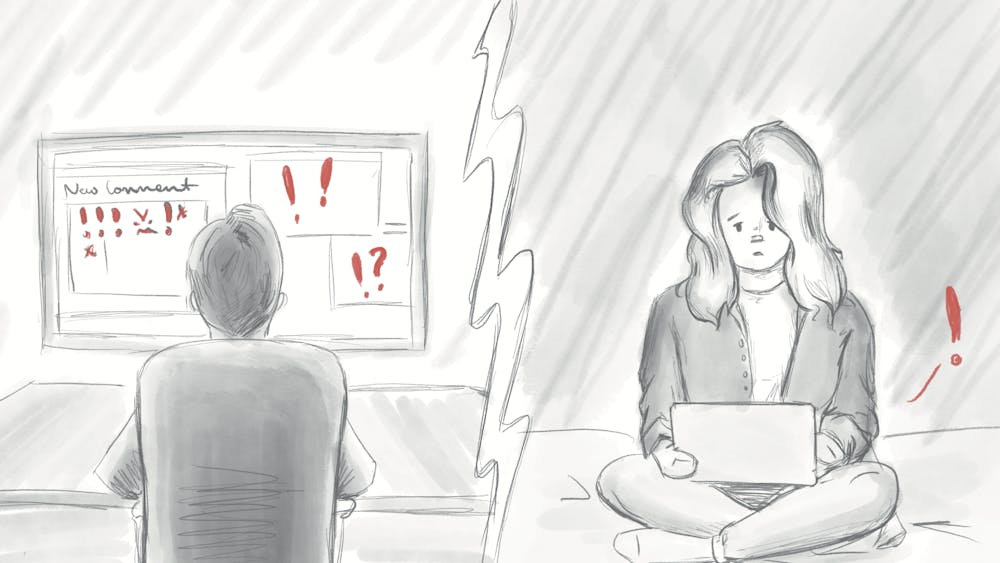This week, the Susie’s Place team moved into a larger building right across the street from its old offices.
In the waiting room sits a pink dollhouse, plastic trucks and picture books. In the hallway sit stacks of small striped onesies, baby bottles, IU T-shirts and toddler socks.
They need to have these things on hand, Emily Perry, Susie’s Place founder, executive director and forensic interviewer, said.
Sometimes the children don’t have any belongings of their own, or they couldn’t grab their things before leaving their homes behind.
Sometimes their clothes might smell of urine or even be stained with blood, Perry said.
“No one ever comes to Susie’s Place because good things are happening,” Perry said.
The vast majority of the children who do come, some as young as two, visit the child advocacy center because they’ve been sexually abused. Others have witnessed violent crimes, and some have been neglected.
Child advocacy centers are a growing movement in the United States, according to the National Children’s Advocacy Center.
The idea behind them is criminal investigations involving minors need to be handled in a more specialized, sensitive, kid-friendly way than other cases.
Though the movement began in the mid-1980s, it was only recently that the FBI issued a memorandum of understanding, which mandates agents use these types of organizations when investigating sexual abuse, Perry said.
Due in part to this increased trust and understanding with law enforcement, Susie’s Place is seeing more and more children every year at its location in Avon, Indiana, and its branch in Bloomington, which opened in 2011.
In 2015, the nonprofit had 967 children sit down with forensic interviewers to have their stories heard, some for the very first time.
“We are that organization that you never think you need to have in your community until you need to have one,” Perry said. “Sexual abuse against children is so much more prevalent than most people realize.”
Data suggests as many as one in every four girls and one in every six boys experience sexual abuse before they turn 18, according to the National Child Traumatic Stress Network.
The need for services at the Bloomington center, which Perry said is the only one of its kind in the south-central part of the state, was so great it outgrew its space.
The new space is still being decorated, furnished and organized. Right now, all that is in the two forensic interview rooms are big comfy chairs.
Later, there will be a microphone, a flip chart, a video camera and a red light, Perry said.
The switch for the light will be in the live observation rooms, where law enforcement officials and psychologists can use it to let the interviewer know they need to talk to them.
There’s also an office for a therapist, whose services are provided free of charge for the children most in need.
The effects of trauma are extensive on children, Perry said.
In her 19 years working as a forensic interviewer, she’s seen kids with trust issues, depression, anxiety, mood disorders and addiction. Victims might also have regular headaches, stomachaches, sexually transmitted diseases or weight problems.
In many cases, sexual abuse victims are reluctant to talk about their experiences, Perry said.
“A lot of children think they can handle it on their own,” she said. “And it’s just too big for anyone to handle on their own.”
Sexual abuse of children is preventable if parents minimize one-on-one contact their children have with other adults and other youth, Perry said. She noted out of their 967 cases last year, only 10 involved a stranger.
“Parents are turning a blind eye because they want to trust people,” Perry said.
Being a good listener is important as well as well as monitoring internet activities like YouTube and Google, Perry said.
“If a child ever comes to you and discloses the fact that they’re being abused, it is your obligation to believe them, support them and protect them,” Perry said. “‘I believe you,’ can be the three most impactful words that child has heard.”






